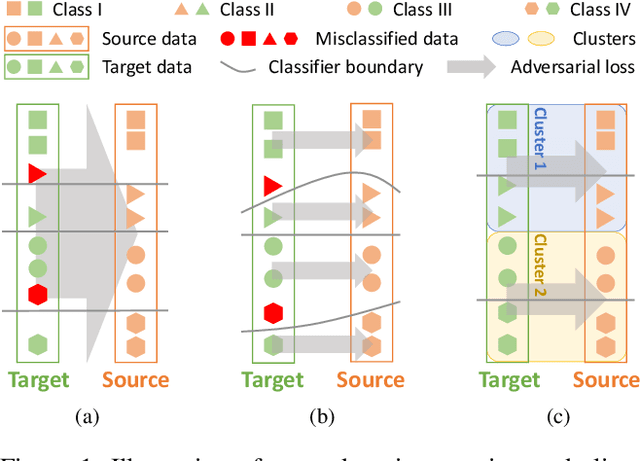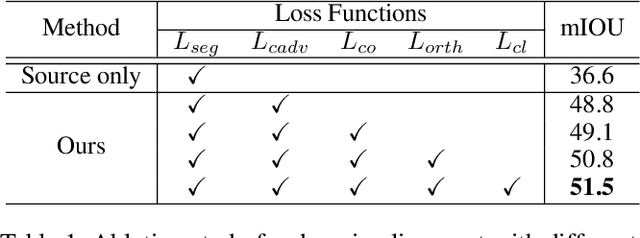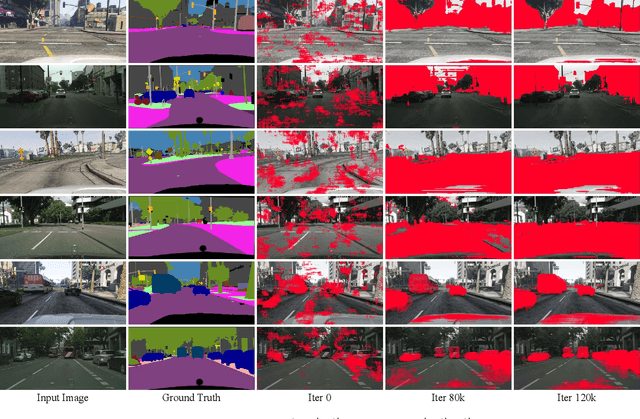Cross-Domain Grouping and Alignment for Domain Adaptive Semantic Segmentation
Paper and Code
Dec 17, 2020



Existing techniques to adapt semantic segmentation networks across the source and target domains within deep convolutional neural networks (CNNs) deal with all the samples from the two domains in a global or category-aware manner. They do not consider an inter-class variation within the target domain itself or estimated category, providing the limitation to encode the domains having a multi-modal data distribution. To overcome this limitation, we introduce a learnable clustering module, and a novel domain adaptation framework called cross-domain grouping and alignment. To cluster the samples across domains with an aim to maximize the domain alignment without forgetting precise segmentation ability on the source domain, we present two loss functions, in particular, for encouraging semantic consistency and orthogonality among the clusters. We also present a loss so as to solve a class imbalance problem, which is the other limitation of the previous methods. Our experiments show that our method consistently boosts the adaptation performance in semantic segmentation, outperforming the state-of-the-arts on various domain adaptation settings.
 Add to Chrome
Add to Chrome Add to Firefox
Add to Firefox Add to Edge
Add to Edge